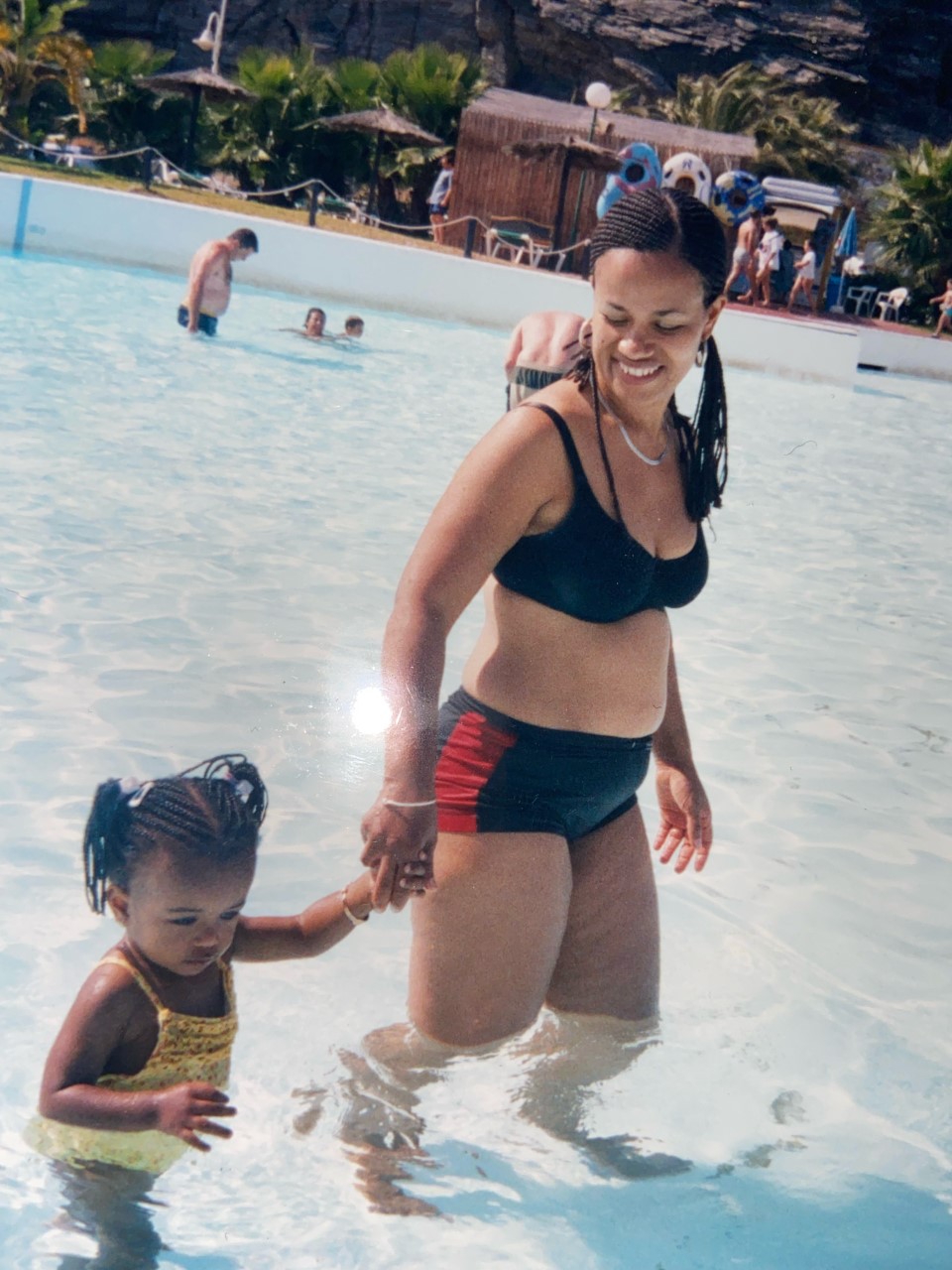The physical benefits of swimming are endless, from offering a low-impact cardio alternative to aiding injury recovery. But it’s the benefits to her self-esteem that writer Nyima Jobe values the most as a Black swimmer.
Earlier this month, the International Swimming Federation outraged swimmers and sports fans around the world by deciding to ban Black swimmers from wearing Afro-friendly swimming caps at the Tokyo Olympics – a move that Swim England condemned as being yet another barrier to diversifying access to the sport.
But I’m here to encourage more Black and brown women to swim, because as a Black swimmer, I know firsthand just how transformational swimming can be for fitness, wellbeing and self-confidence.
You may also like
Olympics 2021: “Undeniably racist” decision to ban Afro-friendly swimming caps at Tokyo 2021 may be overturned
I have been going swimming since I was two; it was one of the activities my mum went to as she navigated her way through motherhood. Swimming stayed a part of my weekly routine until I was 16, having collected all the badges and stages available to me. It never occurred to me that Monday evenings could be spent doing anything other than swimming.
Now, at the ripe old age of 20, I can see that those 15 years of swimming were fundamental in terms of my development. I learned a valuable life skill, and during that process, met loads of people from different walks of life. Swimming was a tool that enabled me to become the best version of myself.
But let’s go back in time, for a minute. By the time I reached my older teenage years, it was up to me to continue swimming for fitness. Like so many teens, I couldn’t see the point and after a little while, noticed that my absence from the pool was making me more lethargic and lazy. Swimming felt like a chore, not a hobby, and so I stayed away.
It wasn’t until lockdown happened last year that swimming made a comeback in my life. My mum invited me to go along with her, as I had as a child. On getting in the water, I realised how much I’d missed swimming. I felt refreshed, refuelled and I made a vow then and there to keep on swimming in the future.

It’s not just laziness that keeps women like me from swimming, however. As a Black girl growing up, I felt like the odd one out in most of my swimming classes. Most of my peers were white and I used to wonder why more Black families didn’t bring their children to these lessons. On reflection, this played a huge role in my decision to stop swimming when I had a choice in the matter.
The lack of representation in the pool at every level has had a huge impact on minority participation in swimming. The dearth of non-white faces in swimming still stagnates the progress that could be made in our communities. While few of us will make it to the Olympics, learning to swim is a crucial life skill and one that can help many of us to maintain health and fitness levels. Black communities deserve that chance as much as any other.
The health benefits of swimming are vast. For one thing, you can achieve your recommended 75 weekly minutes of intense activity without the sweat and distress of visiting a gym! Swimming works your whole body and while your heart rate necessarily increases, it can also be a mindful, relaxing experience. Swimming is also said to improve your sleep and it also has positive benefits on your mood – something that I can personally attest to.

In order to get started with swimming, you just need to find a local leisure centre or pool near you. At last count, there were 3,170 municipal pools in the UK, meaning that there’s probably one within walking distance of where you live. While some places may cost more than others, many offer deals for swimming lessons for kids.
Charities like the Black Swimming Association (BSA) exist to help educate Black people on the benefits of swimming, “aiming to challenge the negative stigmas, narratives and relationships that ethnic minorities have with the water”. The BSA has also partnered with Swim England to campaign for mandatory education and water safety measures for ethnic minorities – which is important given that 95% of Black adults and 80% of children don’t swim.
Too few of us in the Black community are afforded the opportunity to swim, and that has to change. The benefits are too great to ignore, and it’s through the work of the BSA and Swim England that I hope more of us start to splash around.
Swimming should be an accessible way to stay fit. Ethnic minorities deserve access to the facilities on offer and I’d like to see far more of us enjoying the fitness and emotional benefits that come from being in the water. Swimming has been fundamental to the way that I see and treat my body; it’s taught me self-respect, value and love.
They say that “health is wealth”, and if more of us swam, I think we’d be a far richer community.
For workout tips, healthy recipes and training plans to support your time in the water, visit the Strong Women Training Club.
Images: author’s own.
Source: Read Full Article
